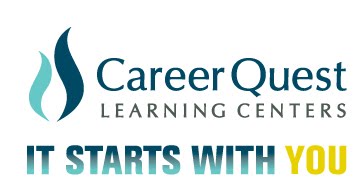It’s probably no surprise that losing weight and getting
more exercise generally land near the top of our New Year’s resolutions lists
every year. But according to the Franklin Covey Co’s survey, two new
resolutions broke into the top 10 category in 2013: getting more education and
improving career situations.
The two do go hand-in-hand.
If you want a better career, you’ll probably need additional
career training.
While starting a new career may seem like a daunting
long-term goal, breaking it down into mini-goals can help you get there.
Instead of thinking big, try thinking small and following these 3 strategies to
find your way to a new career in the New Year:
Before you choose a career, consider your own strengths. If
you like helping others and really enjoy working with people, you may want to
consider a career in the healthcare
field where you’ll get to do both. If you’re a problem-solver, maybe a career
in Information Technology is
just your calling. Or maybe you’ve always imagined yourself working in business. Whatever your interests
and natural abilities, there’s likely a career and training available to you.
Research Once
you’ve thought about who you are and the kind of work environments that you
might like, it’s time to do a little research. Check out careers where top
employers are offering the kind of work you might find rewarding.
Did you know:
·
Jobs in
healthcare are amazingly resilient
·
Since
2007, while most industries were losing jobs, healthcare added more than a
half-million jobs!
·
Jobs for computer support specialists are
expected to grow 18 percent through 2020
·
Administrative assistant positions are expected
to see a 12 percent growth through 2020
Inquire But how
do you find out more? Asking questions of people already working in the fields
you’re considering is one way. Another is to investigate training programs
available in your area. Don’t be afraid to pick up the phone or request
information directly from the school. Remember, if you want to set out on the
path to a new career, starting with small steps should be your first action. At
Quest Learning Centers, you can train for many jobs in healthcare, IT and
business in as little as 7 months. We even have a 14-month IT associate degree
program. You don’t have to spend years to find a new career. You just need to
take that first step.
Career Quest Learning Centers offer an array of career
training programs, many of which can be completed in less than 7 months. Call
one of our three campuses or contact us here for more information. The
beginning to your new career could be waiting behind a Michigan door in Lansing,
Jackson or Kalamazoo.


